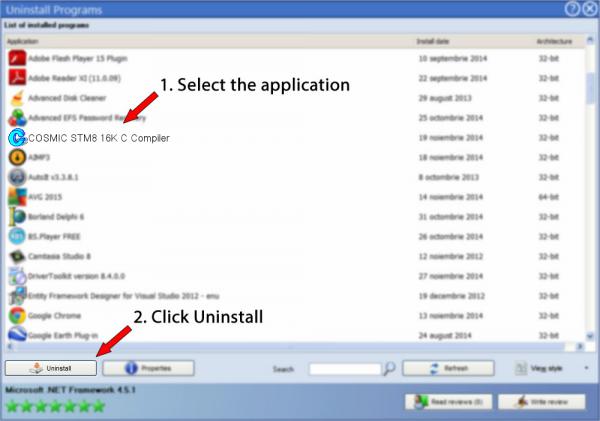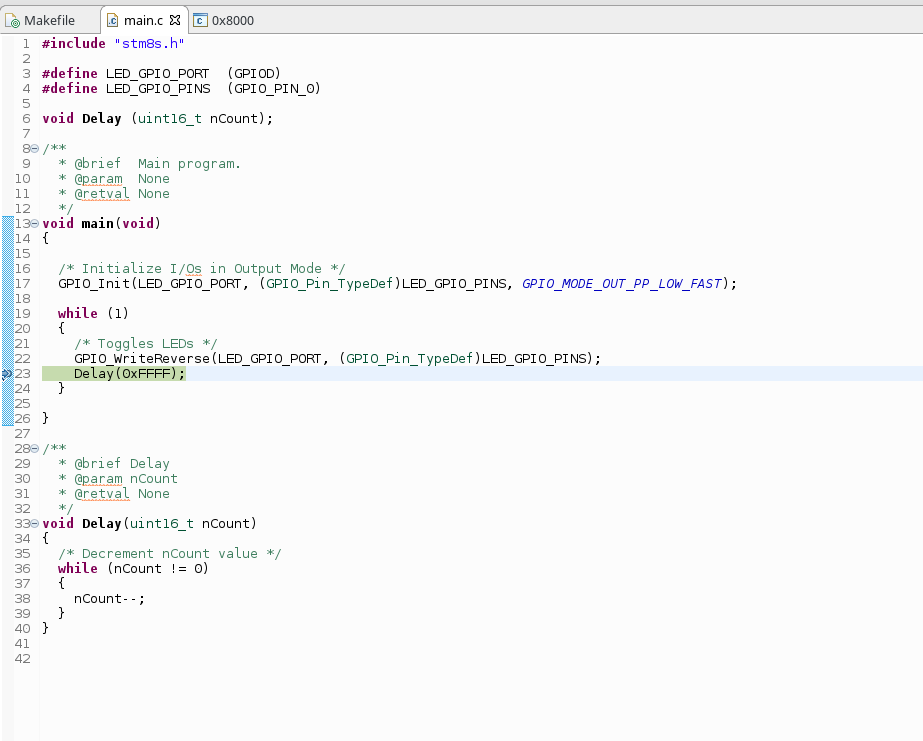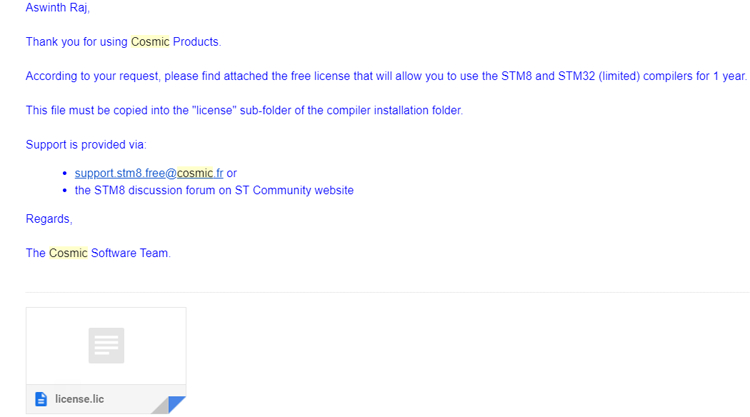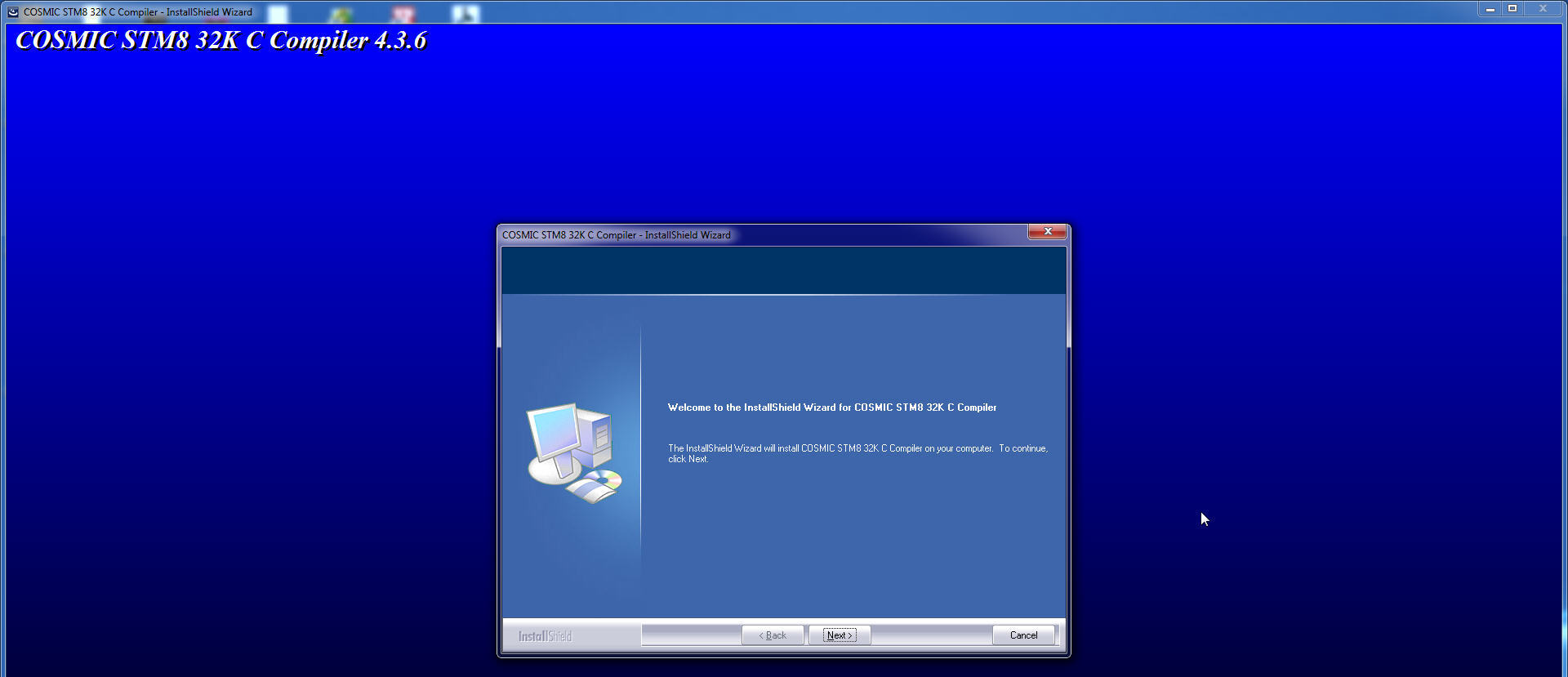

If you encounter strange errors, make sure you are using the “” package:


In this tutorial, we will target the STM8003K3 device used in the STM8VLDISCOVERY board: If you have not created STM8-based projects before, click the “Install” button to automatically download the STM8 BSP. Once you have selected the compiler, pick the device that you would like to target.If not, you can always locate it manually using the link at the bottom of the drop down list: If you have installed the CXSTM8 compiler, VisualGDB will automatically locate and display it in the toolchain list.Note that the CXSTM8 compiler is considerably different from GCC, so the GNU Make and CMake-based projects do not support it: Select “ Create a new project -> Embedded Application -> MSBuild“.Enter the name and location for your project:.Start Visual Studio and locate the VisualGDB Embedded Project Wizard:.Once you have installed CXSTM8, follow the steps below to create, build and debug a basic project: Make sure you install it before proceeding with this tutorial. Hence, the VisualGDB support for STM8 devices relies on the Cosmic CXSTM8 compiler. No support for placing functions into RAM.Building the library without manually commenting out the unused functions will overflow FLASH. No support for placing functions into separate sections.You can download a free edition of CXSTM8 on this page.Īnother option would be to use the open-source SDCC compiler, however it is incompatible with the STM8 StdPeriph library due to: The STM8 devices are not supported by the mainstream GCC compiler, hence VisualGDB supports the STM8 devices by integrating with the Cosmic CXSTM8 compiler. We will show how to create a basic “Blinking LED” project, build and debug it with Visual Studio.

This tutorial shows how to develop projects for the STM8 devices with Visual Studio and VisualGDB.


 0 kommentar(er)
0 kommentar(er)
